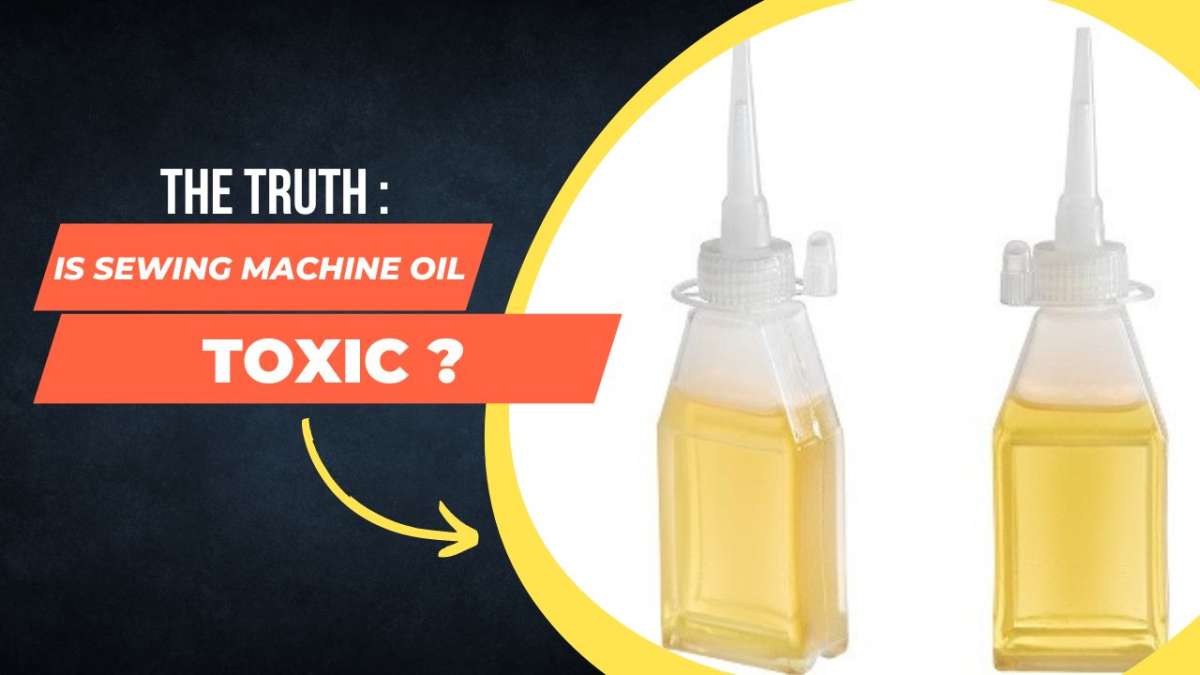There’s a lot of misinformation out there about sewing machine oil . Some people say that it’s toxic, while others claim that it’s perfectly safe. So, what’s the truth? Is sewing machine oil toxic ? Read on to find out.
The first thing to understand is that there are different types of sewing machine oils. Some are made from petroleum, while others are made from natural sources like vegetable oil. The type of oil you use will make a difference in terms of toxicity.
Petroleum-based oils are more likely to be toxic because they can contain harmful chemicals like benzene and toluene. However, these oils are also more effective at lubricating your sewing machine. If you do choose to use a petroleum-based oil, be sure to use it sparingly and only on parts of the machine that don’t come into contact with fabric.
Vegetable-based oils, on the other hand, are much less likely to be toxic. They’re also less effective at lubricating your sewing machine, so you’ll need to use them more frequently. If you’re looking for a safer option, vegetable-based oils are the way to go.
Is Sewing Machine oil Toxic ?

Sewing machine oil is not inherently toxic. However, some types of sewing machine oil (namely, those made from petroleum) can be more toxic than others. If you’re concerned about safety, stick with vegetable-based oils. These may not be as effective at lubricating your sewing machine, but they’re much less likely to cause harm if they come into contact with your skin or fabric.
Sewing machine oil is a light mineral oil that is specifically designed for use on sewing machines. This oil helps to lubricate the moving parts of the machine and prevents rust and corrosion. While sewing machine Mineral oil is not considered toxic, it can be harmful if ingested or if it comes into contact with your skin. If you do come into contact with sewing machine oil, be sure to wash the area immediately with soap and water.
In general, it is not necessary to oil your sewing machine on a regular basis. You should only oil your machine if it starts to make noise or if it starts to operate slowly. Many newer machines come with self-oiling mechanisms that make it unnecessary to oil the machine yourself. However, if you do need to oil your machine, be sure to use only a small amount of oil. Too much oil can actually damage your sewing machine.
The Different Types of Sewing Machine Oil and Their Uses
Just like any other machinery, sewing machines need oil to keep them running smoothly. But with all the different types of sewing machine oil on the market, it can be tough to figure out which one is right for your machine. We will check the different types of sewing machine oil and their uses so that you can make an informed decision about which oil is best for your sewing machine.
Sewing Machine Oil #1: Mineral Oil
Mineral oil is a clear, odorless oil . It is a popular choice for sewing machine oil because it is relatively inexpensive and does a good job of lubricating the various moving parts of a sewing machine. However, it is worth noting that mineral oil can gum up over time, so it is important to clean your sewing machine regularly if you use this type of oil.
Sewing Machine Oil #2: Silicone Oil
Silicone oil is another popular choice for sewing machine oil because it does not gum up as easily as mineral oil. This makes silicone oil a good choice for people who do not clean their machines as often as they should. Silicone oil is also clear and odorless, but it costs more than mineral oil.
Sewing Machine Oil #3: Synthetic Oil
Synthetic oil is man-made and designed to withstand high temperatures without breaking down. This makes synthetic oil a good choice for people who sew frequently or those who live in warm climates. Synthetic oils can be more expensive than other types of oils, but they tend to last longer, so you won’t need to replace them as often.
Which Sewing Machine Oil Is Right For You ?
The type of sewing machine oil you choose will depend on your budget, how often you sew, and the climate you live in. If you are looking for an affordable option that will work well in most situations, mineral oil is a good choice. If you sew frequently or live in a warm climate, synthetic oil may be the better option. And if you are looking for an easy-to-use option that will not gum up over time, silicone oil may be the best choice for you.
